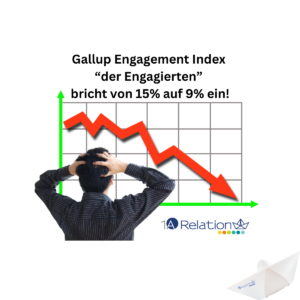It is worth reading this article – despite its length – at your leisure, because it brings many a German problem on the subject of the future to the point.
The term “public viewings” immediately comes to mind. Because this too is the result of incorrect translation. Nevertheless, it has established itself in linguistic usage. And as with the lemmings, such terms are picked up and developed further or adopted without thought.
Now to the reason why you should read the article:
To begin with, there’s the suggestion that “digital” or digit is simply a number/number. The binary system consists of “2 digits”, the “0” and the “1”. So, oh surprise, digitization has something to do with numbers and dates.
But how do the Americans and Germans interpret certain terms or statements? “Much is lost in translation whenever Anglo-Americans and Germans talk about technology.” The nomenclature in the German language is different, says the author. The German hears the terms in Anglo-American usage and uses them – sometimes without adapting the nomenclature – in a German context.
These are a few quotations, but they show very briefly where the pain point lies.
A statement on T-shirts in the 90s was: “There are only 10 kinds of people in the world.” It said on the back, “Those who get binary and those who don’t.”
“Politicians, executives, intellectuals – anybody in Germany who wants to sound visionary without being specific reaches for digitization.”
But, this surprises the German reader: Lee Rainie, a pollster at the Pew Research Center in Washington, recently pondered this during a visit to Berlin. In America, he says, digitalization is “not a word that is the title of a conference, or a journal, it’s not a word that entrepreneurs use, it never comes up in news stories.
“Germany is an engineering culture, Germans generally tend to think of digitalization as a hardware phenomenon. In their schools it means getting the children iPads. When Americans – at Khan Academy, for example – talk about “edtech” or “e-learning”, they think about how, cognitively, human beings learn and ought to be taught, which is quite different.
The author very nicely dissects the linguistic, but also the transfer problem of many Germans. I think he perfectly stimulates us to “think” about the next thoughts and steps.
– Read on
Also worth reading: Our recommendation for weekend reading: Turn the ship around
Note: This is a machine translation. It is neither 100% complete nor 100% correct. We can therefore not guarantee the result.












